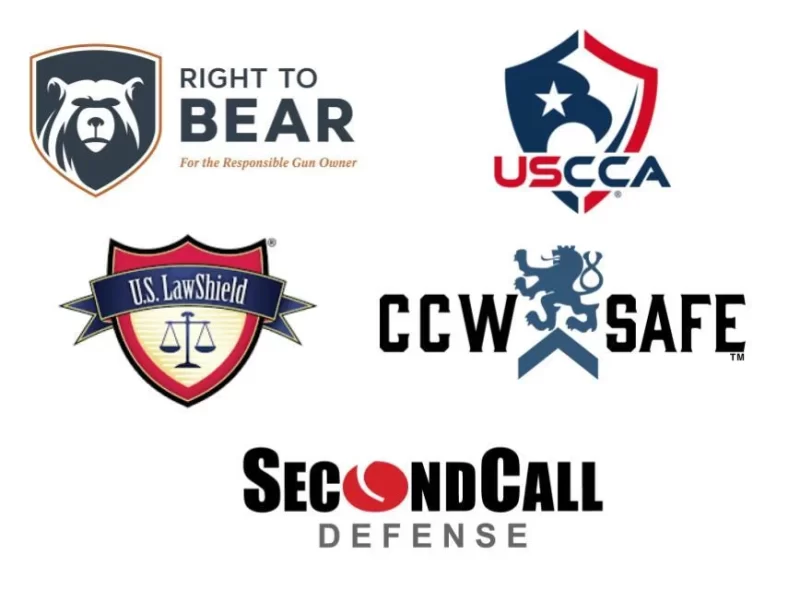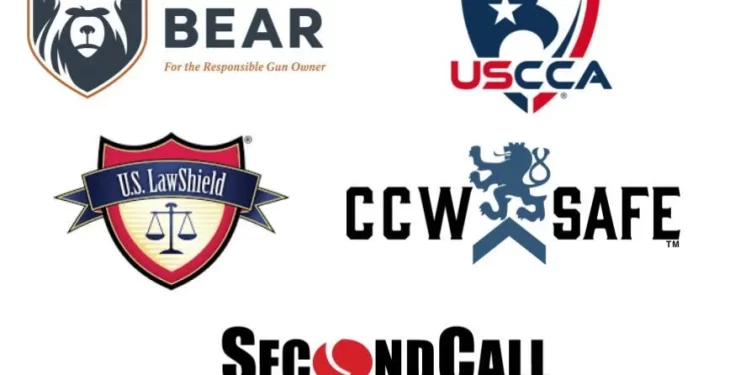Contents
What does USAA stand for?
The United Services Automobile Association (USAA) is a distinguished financial services organization with a rich history and a specific focus on serving the needs of military members and their families. Established in 1922 by a group of U.S. Army officers, USAA was initially formed to provide auto insurance to military personnel. Over the years, it has evolved into a comprehensive financial institution offering various services, including insurance, banking, investment, and retirement products.

USAA’s commitment to its mission is deeply rooted in supporting the financial well-being of those who serve or have served in the United States military and their families. The organization prides itself on a member-centric approach, providing specialized products and services tailored to military members’ unique needs and challenges.
Membership eligibility for USAA is primarily extended to current and former members of the U.S. military, including those who have served in the Army, Navy, Air Force, Marines, Coast Guard, and National Guard. Additionally, certain family members, such as spouses and children, are eligible to join. USAA’s dedication to its military-focused membership base is a key aspect of its identity and has contributed to its reputation as a trusted financial partner within the military community.
USAA’s comprehensive range of financial offerings includes insurance coverage for auto, home, renters, and life and various banking services such as checking and savings accounts. In addition to insurance and banking, USAA provides investment and retirement products to help its members plan their financial futures.
Over the decades, USAA has earned a reputation for its commitment to excellent customer service, financial stability, and a strong sense of community. While originally founded to meet the specific needs of military personnel, USAA’s inclusive approach to family members and its expansion into diverse financial services has made it a prominent and respected institution within the broader landscape of the financial industry.
Is USAA only for armed forces?
USAA membership is primarily available to individuals who have a connection to the United States military, and the eligibility criteria are designed to encompass a range of military service and family relationships.
- Active Duty and Retired Military Personnel: Current and former members of the U.S. Army, Navy, Air Force, Marines, Coast Guard, and National Guard are typically eligible for USAA membership.
- Military Officer Candidates: Officer candidates in commissioning programs, such as those attending a military academy or ROTC, may also be eligible.
- Cadets and Midshipmen: Cadets and midshipmen at U.S. service academies, in advanced ROTC programs, and officer candidate schools may qualify for membership.
- Military Academy/NROTC Graduates: Graduates of U.S. military academies and those commissioned through ROTC programs are generally eligible.
- Military Families: Certain family members of eligible military personnel can join USAA. This often includes spouses and children and, in some cases, widows and widowers of military members.
- Former USAA Members: Individuals who were once USAA members and no longer meet the direct eligibility criteria may still be eligible for certain products and services.
What is Concealed carry insurance?

Concealed carry insurance is a specialized form of insurance designed for individuals who carry concealed firearms for self-defense. It typically covers legal expenses arising after a self-defense incident involving a concealed firearm. This coverage may include legal defense costs, bail bond coverage, and compensation for civil liability.
Does USAA Offer Concealed Carry Insurance?
At the time of writing this article, the United Services Automobile Association is not known for offering a specific concealed carry insurance product. USAA is renowned for providing various financial services, including insurance, banking, investment, and retirement products, primarily tailored to meet the military community’s and their families’ needs.
Concealed carry insurance is a specialized form of insurance designed for individuals who carry concealed firearms for self-defense. This type of insurance typically covers legal expenses arising after a self-defense incident involving a concealed firearm. Coverage may include legal defense costs, bail bond coverage, and compensation for civil liability.
It’s important to note that the availability of concealed carry insurance can vary among insurance providers. As of my last update, USAA has yet to be widely recognized for offering a specific product in this niche. However, insurance offerings and product portfolios can change over time, and new products may be introduced.
Alternative Options for Concealed Carry Insurance

United States Concealed Carry Association (USCCA):
The United States Concealed Carry Association (USCCA) is an organization that aims to educate, train, and provide legal and financial protection for individuals responsibly carrying concealed firearms. Founded to address the specific needs of legally armed Americans, USCCA offers a comprehensive package that includes concealed carry insurance coverage.
USCCA’s concealed carry insurance plans are tailored to offer policyholders legal and financial protection if they need to use their firearm in self-defense. This coverage typically encompasses legal defense costs, civil liability protection, and coverage for criminal defense expenses. In addition to insurance offerings, USCCA strongly emphasizes education, providing various training resources such as articles, videos, and online courses to help individuals enhance their understanding of self-defense laws and safe firearm handling.

Members of USCCA often benefit from exclusive content, including a subscription to Concealed Carry Magazine, which covers topics related to self-defense, legal updates, and training tips. The organization fosters a community where members can connect, share experiences, and learn from one another, creating a supportive network for those interested in concealed carry.
USCCA also provides legal support through a network of attorneys specializing in self-defense cases. In the aftermath of a self-defense incident, members may have access to a critical response team offering legal guidance. This combination of insurance coverage, training resources, and legal support makes USCCA a comprehensive option for individuals seeking to carry concealed firearms responsibly.
As individuals consider USCCA membership, it is crucial to carefully review the insurance coverage details, including coverage limits, exclusions, and any conditions. The organization’s emphasis on training and education may appeal to those looking to improve their knowledge and skills in self-defense continually. Additionally, understanding the availability and effectiveness of the legal support network is an important consideration for those seeking concealed carry insurance.
NRA Carry Guard:

The National Rifle Association (NRA) Carry Guard program is a comprehensive offering that includes concealed carry insurance and related services for individuals who carry firearms for self-defense.
NRA Carry Guard’s primary focus is on providing legal and financial protection to individuals after a self-defense incident. The insurance coverage typically includes legal fee coverage, civil defense costs, and psychological support for individuals who have used firearms legally in self-defense situations.
One notable aspect of NRA Carry Guard is its emphasis on training and education. The program offers various courses to help individuals enhance their skills and understanding of self-defense laws. These training courses cover various topics, from basic firearm safety to more advanced self-defense strategies.
Members of the NRA Carry Guard often have access to a network of legal experts and professionals who specialize in self-defense cases. This network can be valuable for individuals seeking legal support and guidance after a self-defense incident.
The program also emphasizes psychological support, recognizing the potential emotional impact of being involved in a self-defense situation. This holistic approach aims to provide individuals with legal and financial protection and the necessary tools and knowledge to navigate the aftermath of a self-defense incident.
U.S. Law Shield:
U.S. Law Shield is an organization that specializes in providing legal defense coverage for individuals who carry firearms for self-defense. U.S. Law Shield focuses on offering protection in the form of legal support and resources for its members who may find themselves involved in a self-defense incident.

One of the primary offerings of U.S. Law Shield is concealed carry insurance, which typically covers legal expenses associated with a self-defense situation. This coverage often includes attorney fees, court costs, and other related expenses that may arise after using a firearm legally for self-defense.
U.S. Law Shield also places importance on education and awareness. The organization often provides educational seminars and resources to inform its members about self-defense laws. This emphasis on education aims to empower individuals with the knowledge to navigate legal complexities.
Membership with U.S. Law Shield may involve access to a network of attorneys specializing in self-defense cases. This network can be a valuable resource for members seeking legal representation and guidance tailored to the specific legal nuances of self-defense situations.
CCW Safe:
CCW Safe is an organization that specializes in providing comprehensive coverage and support for individuals who carry concealed weapons (CCW) for self-defense. The organization offers insurance plans designed to protect members legally and financially in the aftermath of a self-defense incident involving firearm use.

Insurance Coverage: CCW Safe’s concealed carry insurance typically includes coverage for legal defense costs. This encompasses expenses such as attorney fees, court costs, and other legal proceedings that may arise due to a self-defense situation. The coverage is intended to provide members with financial protection and support during a complex legal process.
Coverage Tiers: CCW Safe often offers different tiers of coverage with varying levels of protection and benefits. Members can choose the plan that best suits their needs, considering factors such as coverage limits and specific benefits offered at each tier.
Expert Network: CCW Safe maintains a network of experienced attorneys and legal professionals specializing in self-defense cases. This network can be a crucial resource for members seeking legal representation tailored to the unique challenges presented by self-defense incidents.
Post-Incident Support: Besides legal coverage, CCW Safe may offer support for post-incident trauma and counseling. Recognizing the potential emotional impact of being involved in a self-defense situation, this aspect of the program aims to provide comprehensive assistance to members.
Armed Citizens Legal Defense Network (ACLDN):
The Armed Citizens Legal Defense Network (ACLDN) is an organization that focuses on providing legal support and resources for individuals involved in self-defense incidents. ACLDN differs from traditional concealed carry insurance providers in that it structures its membership more as a network than a conventional insurance plan.

Legal Network: ACLDN establishes a network of attorneys with expertise in self-defense cases. Members of ACLDN gain access to this network, which can be a valuable resource when seeking legal representation and guidance after a self-defense incident.
Educational Resources: In addition to legal support, ACLDN offers educational resources to help its members understand the legal aspects of self-defense. These resources are designed to empower individuals with the knowledge needed to navigate the complexities of the legal system.
Not Insurance: It’s important to note that ACLDN doesn’t operate as traditional insurance. Instead, it provides a form of membership that offers access to legal representation and educational resources. Members typically pay an annual fee for this access.
Community and Networking: ACLDN fosters a sense of community among its members, encouraging sharing of experiences and insights related to self-defense. This networking provides individuals a platform to connect with like-minded individuals interested in responsible self-defense.
Considerations:
Firstly, regarding policy specifics, it’s crucial to understand the insurance policy’s coverage limits. This involves determining the maximum amount the insurance will pay for legal expenses, damages, or other covered costs. Additionally, reviewing exclusions in the policy is vital, as certain scenarios may not be covered, and being aware of any conditions that may apply is important since policies might have specific requirements based on the circumstances of a self-defense incident.
Regarding the legal landscape, recognizing the significant variance in laws regarding self-defense and firearm use between states and local jurisdictions is paramount. It’s necessary to ensure that the chosen concealed carry insurance complies with the legal requirements in the specific area. Some providers may offer state-specific plans, acknowledging the unique legal considerations of each state.
Personal needs should be carefully assessed. Individuals should determine the level of coverage that makes them feel adequately protected, considering factors such as potential legal expenses, civil liabilities, and other related costs. Additionally, exploring additional benefits the insurance provider offers, such as training resources, access to expert networks, or other perks, is worthwhile.
Provider reputation plays a significant role. Gauging the reputation of the insurance provider through customer reviews and testimonials is crucial. Considering feedback from individuals who have experienced the claims process or utilized the services provides valuable insights. Assessing the financial stability of the insurance provider is equally important, as a stable company is more likely to fulfill its obligations and provide reliable coverage.
Training and education are key considerations. Evaluating the training resources provided by the insurance provider, including courses and educational materials, is essential. Checking if the provider offers legal seminars or educational events to keep members informed about self-defense laws enhances the overall preparedness of the policyholder.
A network of professionals, particularly legal support, is another critical aspect. Determining if the insurance provider has a network of attorneys or legal professionals specializing in self-defense cases is crucial. Access to a knowledgeable legal team can be invaluable in the event of a self-defense incident.
Post-incident support, including psychological assistance for individuals dealing with the emotional aftermath of a self-defense situation, should be considered. Some insurance providers offer this support as part of their comprehensive coverage.
Lastly, staying informed about policy updates is essential. Laws and insurance policies can change over time, so regular checks with the insurance provider ensure that the policy reflects the latest legal requirements and is aware of any changes to the terms and conditions.

